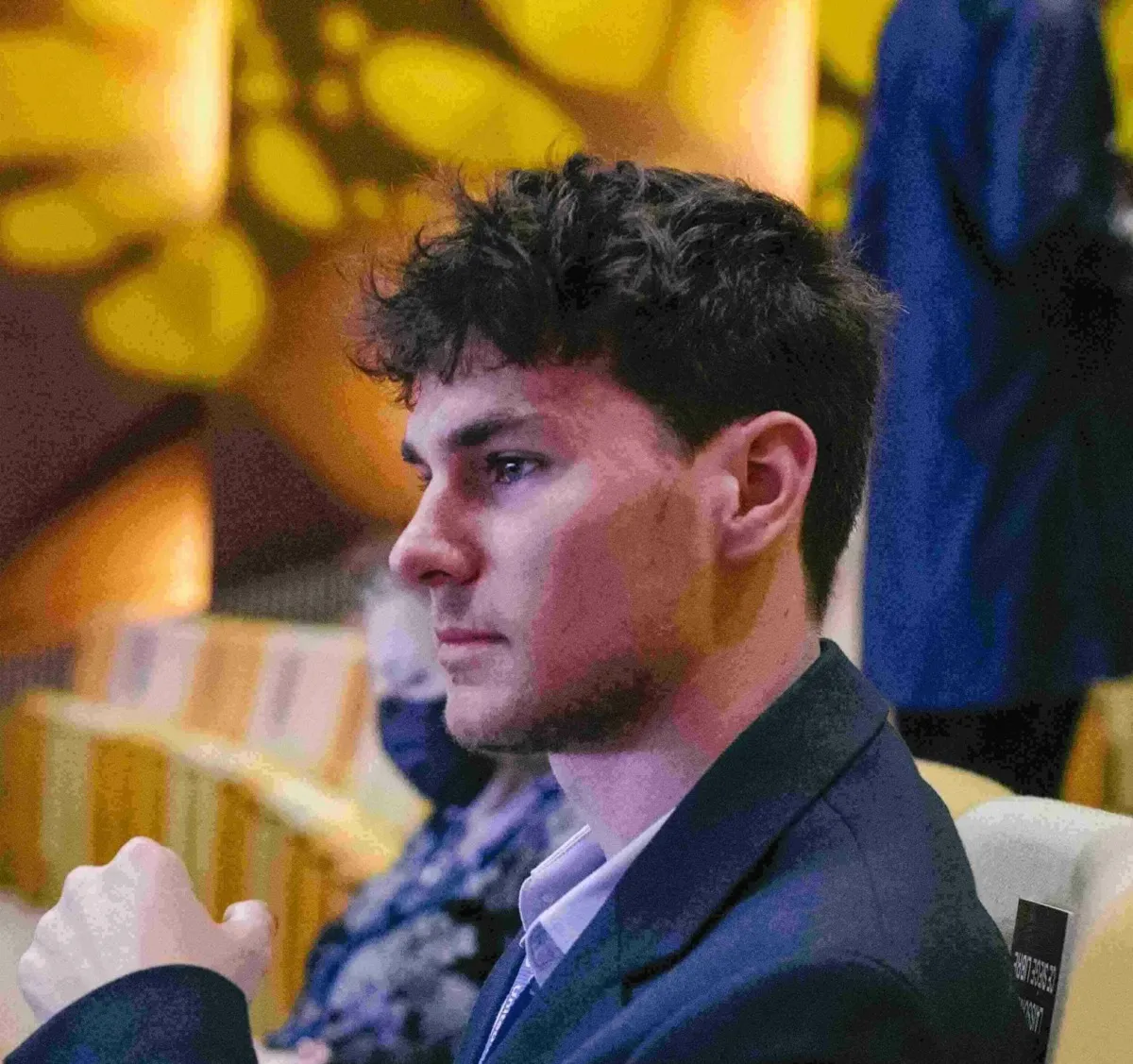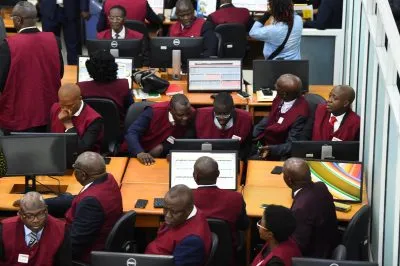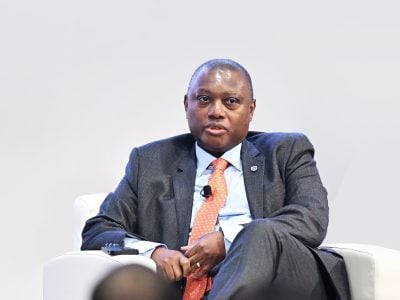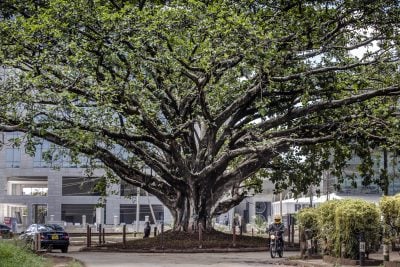In this interview, African Business delves into the world of digital public infrastructures (DPIs) with Michael Wiegand, director of the Gates Foundation’s Financial Services for the Poor strategy, and Konstantin Peric, deputy director for platforms.
With their extensive expertise in the financial sector, including Michael Wiegand’s notable tenure at the CEO of Standard Chartered Bank Botswana, and Konstantin Peric’s role as the chief architect of SWIFTNet, the most widely used system for inter-bank payments, they provide insights into the realm of DPIs.
DPIs are interconnected networks comprising three crucial digital platforms: interoperable payment systems, inclusive digital ID systems, and data exchange systems. When these platforms are implemented cohesively and interconnected, the Gates foundation believes, they can assist countries in providing vital services and economic opportunities across various sectors and development goals, including financial inclusion, social protection, and healthcare, among others.
Wiegand and Peric discuss the implementation of these crucial systems in Africa, emphasising their role in promoting financial inclusion, driving economic growth, and transforming traditional cash-based economies into digital ones.
African Business: How does the Gates Foundation work with African governments on financial inclusion?
Konstantin Peric: We work with several countries in Africa, including Nigeria, Uganda, Tanzania, Kenya, Ethiopia, and Rwanda. Our approach involves assisting these governments in deploying their digital public infrastructure. We provide philanthropic capital to architect, deploy, and operate these systems until they become self-sustainable. Additionally, we offer technical assistance and provide open-source software to accelerate the projects. By doing so, countries in Africa can benefit from the experiences of pioneer nations like India and Brazil in deploying digital public infrastructure.
Among the mentioned countries, some have implemented this infrastructure using the technology they purchased. Others, such as Tanzania and Rwanda for example, have opted for the open-source asset. The goal is to make these interoperable public infrastructures accessible and affordable to everyone in the counties, allowing them to benefit from various financial services, ranging from peer-to-peer payments to government transactions, merchant payments, and more sophisticated services as the project progresses.
We refer to these initiatives as digital public goods (DPGs) because they operate on a not-for-profit basis, providing easy and affordable access to the public. The ultimate goal, of course, is to connect the estimated 400m African adults who still lack access to any financial services.
Why are digital public infrastructures relevant in the context of low-income countries in Africa? And why should government focus on their implementation?
Michael Wiegand: Interestingly, Africa is leading the way in many aspects and displaying great innovation when it comes to payment systems. Some of the systems emerging in Africa are surpassing those in the Western world. Now, we see Africa taking the lead in shaping the evolution of instant or fast payments, which is being replicated in the Western world.
These platforms hold tremendous potential not only for fintech but also for technology companies in general. Previously, these companies had to rely on formal banks and undergo a complex merchant classification process. The ability for any technology company to instantly receive payments without a complicated banking relationship is a major breakthrough for the continent. When there is a trusted and automated authentication process ensuring secure payment initiation, the risk of fraud significantly decreases. This benefits individuals and opens up new business opportunities while reducing the cost of operations for technology companies. Consequently, we see the lines blurring between tech and non-tech sectors. For instance, ride-hailing services wouldn’t exist without the ability to embed low-cost payments into their platforms.
Nigeria, Africa’s largest economy, fell short of its target to reach 70% of its population with formal financial services by 2020, achieving only 51%. How do you assess the country’s progress?
Michael Wiegand: Across Africa, mobile network operators (MNOs) are often at the forefront of reaching low-income and rural consumers due to their existing infrastructure for voice and data services.
Nigeria took some time to establish the necessary regulations for MNOs to operate, but now that the largest telcos in Nigeria have mobile money licenses, we are optimistic about their expansion. Financial inclusion levels in Nigeria vary significantly by state and region, with the northern part of the country facing particular challenges. Providing financial services in the last mile, especially facilitating the transition between digital and cash, poses difficulties. Agents are typically the most expensive part of the system, and the economics become more challenging in rural areas with fewer transactions and higher cash-related costs.
To address this, we are working with the International Finance Corporation (IFC) to provide financing for agents, recognising the opportunity they present. Our analysis identified nearly 40,000 locations in Nigeria with the density and volume to support agents, but without actual agents. We aim to expand the agent network.
On the other hand, Nigeria has been an early adopter of an interoperable payment system, including non-banks. But there is a need for harmonisation and simplification of the bank ID system, which competes with the national ID. Nonetheless, the competitive landscape in Nigeria provides opportunities for significant progress in growing financial inclusion.
Michael, having worked at Standard Chartered Bank in South Africa and Botswana, what role do you think African banks should play in implementing digital payments compared to fintech and telcos?
Michael Wiegand: I believe banks should support and embrace the opening of the system to new players and customers. The economics of traditional banks make it challenging for them to serve the poorest and most rural customers. In many cases, banks don’t even aim to compete for those customers. However, including them in the financial system creates opportunities for banks and their corporate customers to offer new products and services when digital payments are available.
A comprehensive payment system that links all participants together is crucial. A mobile money system that doesn’t integrate with the banking system is detrimental to everyone. This unified and consistent payment system presents significant opportunities for banks. Unfortunately, some banks tend to limit competition, which is short-sighted, particularly in Africa. It’s not like there’s a thriving credit card payment system that’s going to be eaten away by these other digital payments. It’s all really upsides. I would really hope that banks welcome this opening of the system. There is vast potential for expanding the financial system, and all players should work towards that goal instead of focusing on market share disputes.
Historically, low-income communities have favoured cash due to their lack of trust in formal institutions and their preference for operating within informal networks. How do you establish trust in new digital public infrastructures?
Konstantin Peric: To gain the trust of consumers in Africa, we need to design digital systems that mimic cash while incorporating additional security features. Cash is not only insecure but also leads to productivity loss as it requires physical transfer and travel. When devising a digital system that consumers can trust, we conducted surveys on ongoing initiatives in developed, low, and medium-income economies. The key finding was that payments should be instant and irrevocable, replicating the characteristics of cash. We established principles describing a payment system that is instant and irrevocable for users.
Another crucial aspect is ubiquity. Cash is universally accepted, and the payment system should be equally ubiquitous. Users should be able to receive money from employers, transfer funds instantly between wallets, and make payments for various goods and services. The digital wallet should be usable in multiple scenarios. However, affordability and cost remain potential barriers. We collaborate with stakeholders to make operations and transfers free or close to free for users. Enabling easy transformation between cash and digital currency through an extensive agent network is essential. Although these projects are complex and time-consuming, once operational, they offer tremendous benefits.
Do you see a risk of governments, or controlling corporations, exploiting digital payments for control, censorship, and discipline? How can this risk be mitigated?
Konstantin Peric: There is indeed a risk that new technology can be misused, particularly in terms of cybersecurity issues and fraud. To address this, we focus heavily on designing platforms with good principles to make them resistant to fraud, misuse, money laundering, and other concerns. With our partners, we prioritise cybersecurity, drawing from the experience of organisations like Swift. Proactive system architecture and continuous monitoring help enhance resilience against fraud.
Michael Wiegand: Digital ID systems have also raised concerns regarding potential government abuse, particularly in terms of identification and surveillance. To address this, we invest in privacy by design, ensuring that systems are designed to limit abuse potential. Initiatives are underway, such as investments with Carnegie Mellon in Rwanda, to incorporate privacy into ID systems. Privacy regulations and legislation play a vital role in governing how information is used. Implementing these systems within the right regulatory and policy environment is crucial for safeguarding against misuse.
Want to continue reading? Subscribe today.
You've read all your free articles for this month! Subscribe now to enjoy full access to our content.
Digital Monthly
£8.00 / month
Receive full unlimited access to our articles, opinions, podcasts and more.
Digital Yearly
£70.00 / year
Our best value offer - save £26 and gain access to all of our digital content for an entire year!

 Sign in with Google
Sign in with Google 



